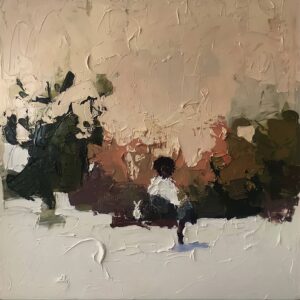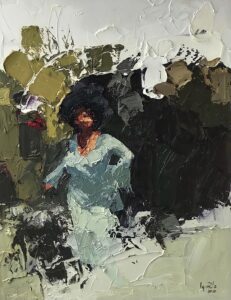Forks as Metaphors for Identity
A Strange Note in ለካቲት (Lekatit)*
‘Marcus Aurelius would deprive things of their euphemisms — roasted meat is a dead animal and vintage wine is old fermented grapes. The aim was to see these things as they really are, to ‘strip away the legend that encrusts them.’ _Ryan Holiday.
Let’s play a game. Think about a fork— yes, the one used for eating. When that is done, write down as many uses as you can think of, for a fork. There’s no right answer, so feel free to attach a fork with whatever function you find fitting.
This test is known as the divergence test, which, as finely described by Gladwell in Outliers, ‘requires you to use your imagination and take your mind in as many different directions as possible.’ Unlike several assessments that measure textbook knowledge or analytical intelligence, the divergent test is a venture within the creative pockets of one’s mind. When we strip things of their defined identities, we unlock the door to exploring what could be. This is also true for us as humans. So often are we limited by identities defined for us by our environment that we ignore the possibility of existing as a different self.
In their timely piece on making smart decisions without the factor of luck, the team at Fanam Street explores the limitations of niches, which, in a way, serve as drivers for our defined identity, noting that ‘we live in a society that demands specialization. Being the best means being an expert in something. Letters after your name and decades in the trenches of experience are required before you can claim to know anything. In one sense there is nothing wrong with this — specialized knowledge is required to solve problems and advance our global potential. But a byproduct of this niche focus is that it narrows the ways we think we can apply our knowledge without being called a fraud. So we think physicists can’t teach us about love; mathematicians can’t instruct us on how to run a business; poets don’t know squat about “my life.” And bloggers can’t contribute to philosophy.’
As present in my digestion of Adam Grant’s conversation on how we can emerge from the ashes of rejection, we all have over a single identity that can be accessed by will; identities that serve in our definition of self and navigation of different fields across life.

In thinking of our being as an element capable of existing divergently, we become, firstly, aware of the creativity coursing within us which, through our actions, further reveals itself as projects and ventures in our external environment. Divergent thinking helps us understand that the skills we build in one field can be applied to other aspects of life.
Secondly, our understanding opens up to the possible identities of people we hold in high esteem and fosters our forgiveness of their mere capacity to err as humans. When we strip spiritual leaders, for instance, of their title, we realize that they are but human, capable of existing within any professional and vocational line of identity. Too often do we place people on a pedestal, only to toss them aside when their lifestyle no longer suits our beliefs. Understanding the mere humanity of others curtails our obsession around expectations of perfection.
Thirdly, and deeply vital, it helps us realize interesting ways to live. The simple understanding that we can be more than we’ve known, do more than we’ve been told we could, and live, in the wholeness of our being, bears great reward for the self.
Through the investment of my imagination in the uses of a fork, I found it to be a useful tool as a partitioner for hair, in the carving of shapes, for picking up the drain in a bathroom, in inflicting harm on someone or something, for lifting up something nasty, as a tracer for when you can’t draw a fork but are mandated by your teacher to do so, as an item for peeling fruits, in playing with the sole of your feet, for making shapes in a sandcastle, as an emergency blade for making an incision to remove a deadly creature from someone’s body, and, of course, for eating. The self, too, can be applied within different identities.

1 Question for You
Who are you?
As you think through this question, here’s what you should read next: digest the brilliance of Shane Parish and his team at Fanam Street on smart decisions, and close with Maria Popova’s brilliant exploration of the building blocks of identity.
*ለካቲት (Lekatit) is the Tigrinya word for February. Tigrinya is a member of the Semitic branch of the Afro-Asiatic language family. It is spoken by 4.3 million people in Ethiopia, 2.5 million people in Eritrea, and 10,000 people in Israel.
 @etashelinto
@etashelinto